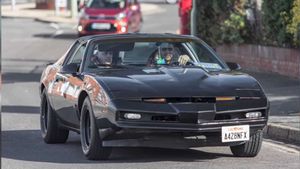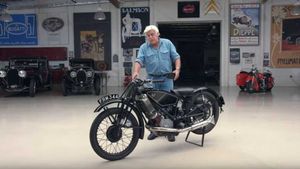The idea of converting classic cars to electric vehicles still has some detractors.
We knew it was coming. With all the recent talk about the converting vintage cars over to electric propulsion, it was only a matter of time before we heard an opposing viewpoint to this practice. The Fédération Internationale des Véhicules Anciens (which translates to, International Federation of Ancient Vehicles), or FIVA, recently released a statement that doesn't necessarily discourage EV conversions but rather clarifies that EV-converted classics are no longer considered historic vehicles in the organization's eye.

FIVA is a worldwide organization based in Italy that is "dedicated to the preservation, protection and promotion of historic vehicles and related culture, as well as their safe use," and the statement indicates that supporting EV conversions goes against the preservation and protection of these cars. In FIVA's eyes, to classify as a historic vehicle, a car must be a " mechanically propelled road vehicle" that is at least 30 years old, preserved and maintained in a historically correct condition, not used as a means of daily transport and part of our technical and cultural heritage. In these terms, an EV conversion is just as bad as an LS swap when it comes to maintaining a car's historically correct condition.
In the last couple of years, we've seen numerous companies converting classic into electric vehicles. These companies include private companies such as Lunaz Designs as well as major automakers like Volkswagen, Jaguar and Aston Martin. Many of these conversions are said to be reversible.
FIVA’s Vice President, Tiddo Bresters, said:
“It is not, in our opinion, the shape or body style of a vehicle that makes it ‘historic, ’ but the way in which the entire vehicle has been constructed and manufactured in its original form. Hence if any owner, motor engineer or manufacturer chooses to make such conversions to a historic vehicle, FIVA would strongly recommend that any changes are reversible, with all the original components marked and safely stored. In this way, the vehicle may – if so desired in the future – be returned to its original state and may once again become a historic vehicle.”
This suggests that FIVA isn't against electric cars, they are just against the modification of any historic vehicle. That means in 19 more years, the Tesla Roadster will surely be considered an historic vehicle... as long as it is still in factory original condition.





